CONTACTStaffCAREER OPPORTUNITIESADVERTISE WITH USPRIVACY POLICYPRIVACY PREFERENCESTERMS OF USELEGAL NOTICE
© 2024 Pride Publishing Inc.
All Rights reserved
All Rights reserved
Scroll To Top
By continuing to use our site, you agree to our Private Policy and Terms of Use.
What would Bulldog say? After years of costarring with TVs favorite therapist, Frasier Crane, Dan Butler, who played the straightest-guy-ever on Frasier, gets into the shrink act himself in Fixing Frank. The dark indie presents the openly gay actor as Dr. Apsey, a radical therapist with the supposed ability to convert gay patients into heterosexuals. Apseys chilling power over Frank, a gay reporter posing as a patient (as egged on by his psychotherapist boyfriend), fuels a complex, thought-provoking drama about love, identity, and psychology. Out.com spoke with Butler about the film, Frasier, his long-term partnerand the irresistible Karl Rove.
Hi, Dan! Howve you been?
Good. I just got back from a whirlwind four-day trip a few minutes ago. Filming for this project [the indie film Karl Rove I Love You] in Colorado, Utah, Nevada. We went through about every climate: snowstorm, windstorm, rain, sunshine.
Sounds very dramatic.
It was!
Have you seen that part of the country before?
Oh, yeah, I used to hitchhike across the country I love to see the country unfold.
Fixing Frank comes out in L.A. on May 20. Whats it like shooting an indie versus, say, big-budget TV?
It was a little bit of guerrilla filmmaking. It was hot. We shot in July, but the film was set in the winter, so we were wearing wool cardigan sweaters. Our makeup person/costumer was borderline manic depressive and wasnt there a lot. So wed be perspiring, mopping off the sweat, making each other up and Action! The place where we did most of the therapy sessions was in the house of a manic depressive/agoraphobe who hadnt cleaned the place in years. It was two inches thick with dog hair. There was a cat litter box in the kitchen. The cat had died two years ago, but it still had cat poop in it because he felt this dissuaded rats from coming in. Manic depression seems to be a theme here!
What do you know about real-life conversion therapy?
My partner had a friend who had been through a conversion therapy; he stayed in a house up in San Francisco, I believe. It just seemed like stunted growth, like arrested development.
Fixing Frank will inspire many of us to remember our own years in the closet. What was your own coming-out process like?
Pretty unique. In retrospect I was always attracted to men, but I just thought that everyone felt the same way that I did. And then it became evident at one point that this wasnt the case. I didnt necessarily come off as everyones definition of what gay is, so I didnt have to combat people who were picking on me for being effeminate. It was a slow discovery in real life. There was a production of Boys in the Band by a local theater company. That was the first time Id seen two men in their underwear being intimate speaking with one another. They werent exaggerated, evil, or the butt of peoples jokes. They were just there. There was a deep recognition and I was really grateful for thata big turning point.
Fixing Frank made the festival rounds in 2001 and 2002, but is more resonant than ever in 2005, given the gay marriage debate, the mainstreaming of fundamentalism, and an often homophobic vibe in the White House. How important is it for you to perform in works that further the dialogue about sexuality and gay identities and sensibilities?
Its extremely important. What I love about Fixing Frank is that it challenges the norm and how you think. Theres a lot of gray matter in this. This film angers, surprises, and stimulates people. It wants you to give the answers. Ive never been a part of something that glued people to their seats and had them talking outside the theater for hours. They find themselves talking back to the characters out loud.
Do you miss Frasier? How did it change your life? Do you at all resent being associated so closely with Bulldog?
Oh, no. It was a great rolewhat a gift to make people laugh. Around the time the show began, I also had a one-man show which was the most public forum to date of me being out. Being this rabid heterosexual on Frasier challenged peoples views. It was a wonderful coming together. Its pretty magical: How did this group of actors, writers, and creators happen to be together at this point in time to create this thing? And there werent egos getting in the way. Kelsey Grammer was firmly of the Lets all be great belief. There was a strong mutual respect.
Did you say goodbye to Bulldog as you wanted to?
I was a little bit disappointed: I was doing a play in New York (Twentieth Century with Anne Heche and Alec Baldwin) when the final episode was being shot. They tried to figure out a way to fly me back to shoot itbut it just couldnt happen. I left the show as a regular after six years. The juiciest stuff came when I came back periodically. In a way Im grateful that I wasnt able to be in the final episodeI think its nice to just leave a character midair somewhere.
What do you think about the gay presence on TV todayboth in the depiction of gay characters and themes as well as gay creative forces behind the scenes?
Its essential, and has to be done in a witty waywere going through the Dark Ages. I find right now a very exciting time: I look back in history, and the times I love were the Depression, the Civil War The divisiveness is just as strong now, as is the importance of the issues. People who survived the Dark Ages were the court jesters. How do you walk through this with grace and humor while still being vigilant?
Youre working on a film right now called Karl Rove I Love You. Tell me more!
Well, I just fell in love with the guy. I know it doesnt make sense, but love doesnt make sense. Hes committed, ruthless, and has no moral boundaries, and I like that in a man. [Laughs]
Who do you play?
I dont want to give anything away. Its a dark romantic comedy. [Laughs] Its been fun getting to know Karl better. Have you ever seen him in shorts? He surprises people in more ways than one.
Tell me more about your partner, Richard. Howd you meet?
Richard and I have been together for 11 years. We were both actorshes a brilliant acting teacher todayand had been aware of one another. I saw him in a show and was really smitten but found out he was in a relationship for five years. A few months later, I asked my director who knew us both, Hows Richard doing? And he said, Well, his lover died. And I said, Oh, so hes available! So its the old waiting-til-the-lover-dies story. We went out. He was in a mourning period. We didnt call them dates but whatevers, and just took it slowly. I remember talking to his departed ex, saying, I dont want to encroach on the love you have for one another, but I really care for him. I think like anything worth anything, it takes a lot of work. People say this in relationships, but its true: We make each other laugh, and that really helps.
From our Sponsors
Most Popular
41 male celebs who did full frontal scenes
September 16 2024 2:02 PM
39 LGBTQ+ celebs you can follow on OnlyFans
November 19 2024 9:39 AM
33 actors who showed bare ass in movies & TV shows
September 17 2024 5:43 PM
26 LGBTQ+ reality dating shows & where to watch them
December 10 2024 12:38 PM
21 times male celebrities had to come out as straight
November 19 2024 3:33 PM
17 queens who quit or retired from drag after 'RuPaul's Drag Race'
November 30 2024 12:26 AM
52 steamy celebrity Calvin Klein ads we'll always be thirsty for
August 27 2024 1:08 PM
15 things only bottoms understand
October 08 2024 5:18 PM
15 gay celebrity couples who make us believe in love
October 03 2024 5:43 PM
A gay adult film star's complete guide to bottoming
September 16 2024 8:50 AM
Latest Stories
Netflix to stream Women's World Cup—these queer soccer players paved the way
December 21 2024 12:00 PM
Celebrating extraordinary leaders of the Out100 Special
December 21 2024 9:00 AM
Ranking the top 10 albums released by LGBTQ+ artists in 2024
December 20 2024 7:20 PM
Frotting vs. Frottage: Here are the key differences you should know
December 20 2024 6:50 PM
What's your battle cry? The 'Wicked' sing-along album is finally here
December 20 2024 6:15 PM
What is T-Boy Wrestling? Learn more about this sport for trans men
December 20 2024 3:48 PM
Where and how to watch the 2024 Out100 Special
December 20 2024 3:37 PM
Out and About with Billy Eichner
December 20 2024 3:28 PM
35 pics of David Barton & Susanne Bartsch Toy Drive 2024
December 20 2024 1:16 PM
Friday, December 20
December 20 2024 12:10 PM
Brian Jordan Alvarez accused by former costar of sexual assault
December 20 2024 9:42 AM
Take a sneak peek at 'The Jinkx and DeLa Holiday Show' drag extravaganza
December 20 2024 9:15 AM



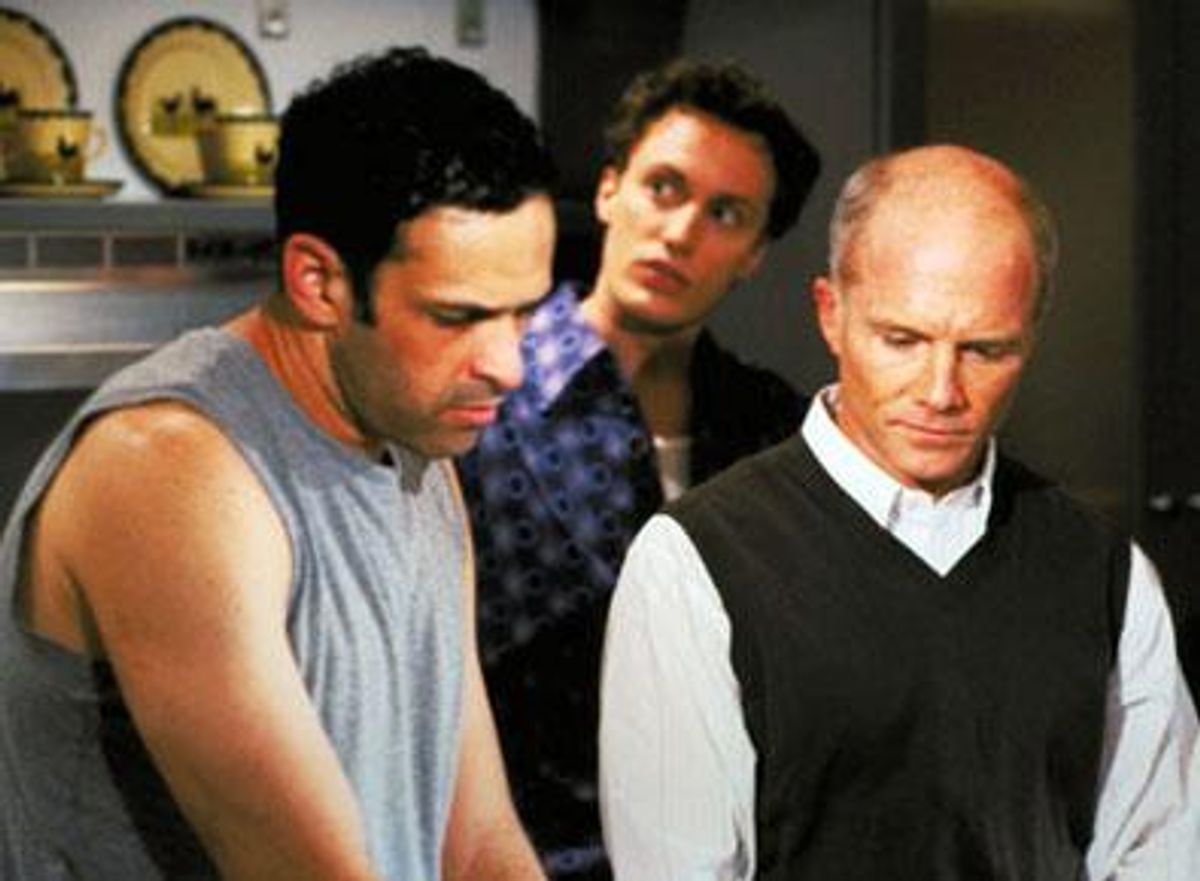





























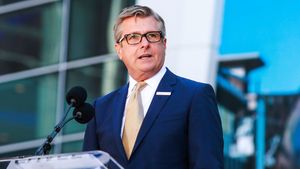
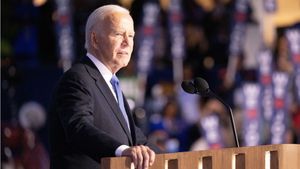

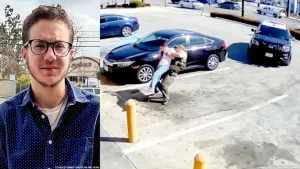















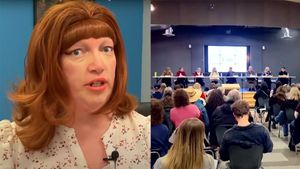
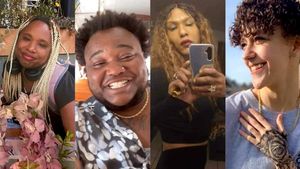

















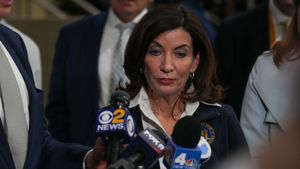
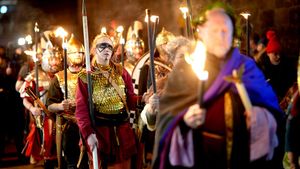
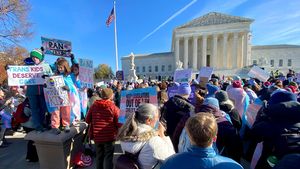







Sexy MAGA: Viral post saying Republicans 'have two daddies now' gets a rise from the right